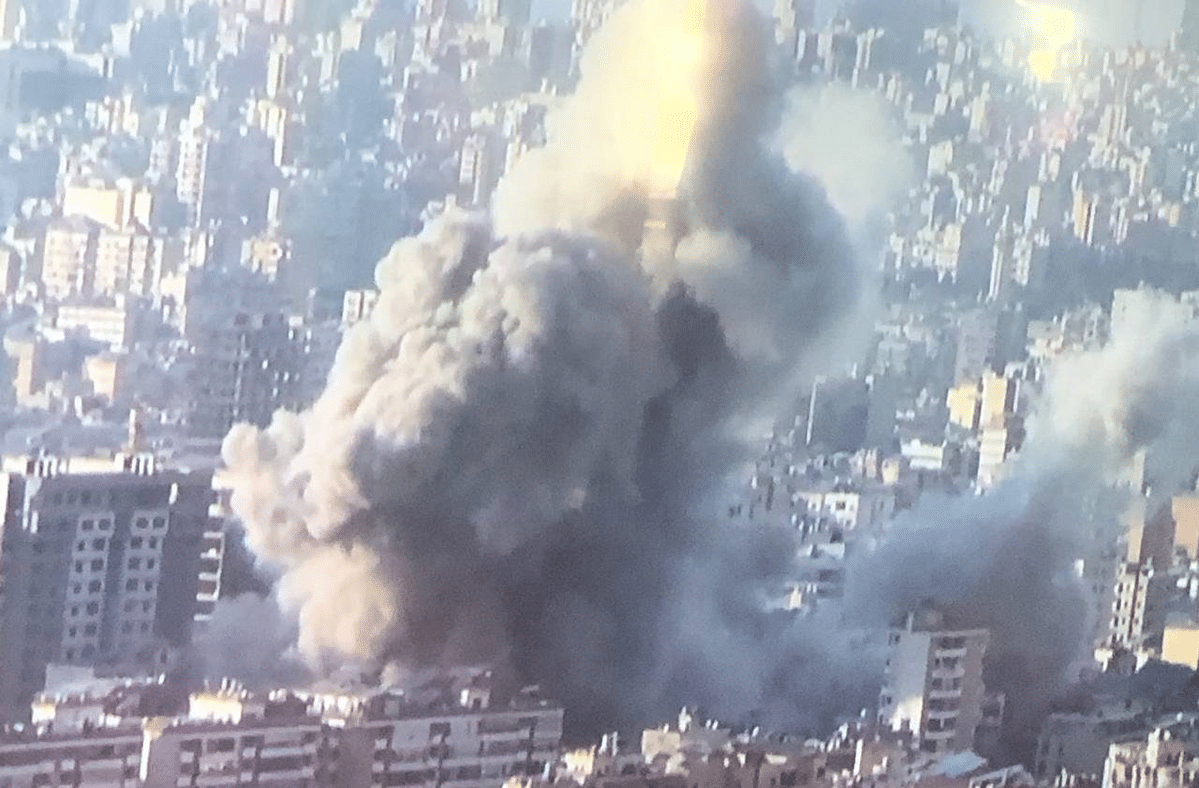I could not tell the easy, comforting lie.
“No”, I told the woman, her traumatised children clinging to her legs, “I can’t say you are safe here; not one of us is safe. The Israelis are genocidal. But in Lebanon so far, I don’t think they have bombed a school”.
I was with one of 67 families, with 215 children, living as refugees in a small school at Ain Rumaila in Southern Beirut. The area borders the evacuated suburb of Dahiya which the Israelis are systematically demolishing, and bombings rattle the windows of the school every day.
This woman is a school teacher when at home in Southern Lebanon, and her husband a retired soldier. They had to leave their small town with no notice, through an intense air raid, as Israeli bombs destroyed buildings and killed and maimed people all round them.
They got out only with what they could carry. Their home was destroyed behind them.
Israel has targeted refugees all over Lebanon. Just the day before, we had been at the site of a refugee aid centre in central Beirut, which had been targeted for missile attack. The death toll on that attack has now risen to five, with seventeen seriously injured.
I reached that site before I could establish exactly what the target was:
My aim in visiting the school was to let a few refugees tell to camera their own stories about their daily pre-war lives and their communities, so that people might see them as individuals, and not just a huddled mass of misery.
I think that worked. Within 48 hours the resulting video will be available. But what this woman urgently wanted me to tell her was that now they are safe.
And I couldn’t. If the children understood English, then I might perhaps have lied for their sake and replied that everything is OK. But the situation is too serious for self-serving false cheer.
Fair use excerpt. Read the whole article here.

